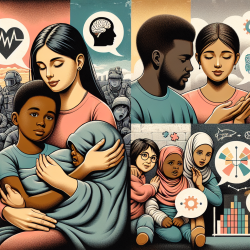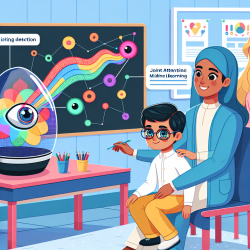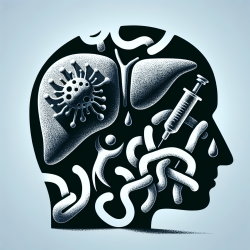Introduction
In conflict-affected regions, children face significant psychological distress, necessitating effective psychosocial interventions. A recent study titled "Practice-Driven Evaluation of a Multi-layered Psychosocial Care Package for Children in Areas of Armed Conflict" offers valuable insights into implementing a multi-layered care system. This blog aims to guide practitioners in enhancing their therapeutic skills by integrating research outcomes into practice.
Understanding the Multi-layered Care Package
The study evaluates a community-based care package implemented in Burundi, Indonesia, Sri Lanka, and Sudan. This package is structured into different levels of care:
- Level 1: Mental health promotion activities for the general population.
- Level 2: Peer-resilience group activities aimed at preventing psychosocial problems in at-risk populations.
- Level 3: Classroom-Based Interventions (CBI) for children with elevated psychosocial problems.
- Level 4: Focused individualized care for children with severe psychological distress.
- Level 5: Specialized psychiatric services for treating mental disorders.
Key Findings and Implications
The evaluation revealed high levels of client satisfaction and moderate post-treatment problem reductions. However, service providers reported significant distress related to service delivery. Cost analyses indicated variability in mean cost per service user across different countries, highlighting the need for cost-effective strategies.
Practitioners can draw several implications from these findings:
- Screening and Detection: Implementing primary and secondary screening procedures is feasible and aids in effectively allocating resources to match children's needs.
- Therapist Support: Addressing therapist burden through workload adjustments, training, and support systems is crucial for sustainable service delivery.
- Cost-Effectiveness: Future interventions should focus on reducing costs while maintaining quality, ensuring broader reach and sustainability.
Encouraging Further Research
While the study provides a robust framework, further research is necessary to refine these interventions. Practitioners are encouraged to explore:
- Innovative screening tools for early detection of psychosocial distress.
- Strategies for reducing therapist burden and enhancing support systems.
- Cost-effective models that maximize resource allocation.
Conclusion
Implementing a multi-layered psychosocial care package is feasible and beneficial in conflict-affected settings. By integrating these research insights, practitioners can enhance their therapeutic approaches, ultimately improving outcomes for children in need. For a detailed exploration of the study, read the original research paper.










